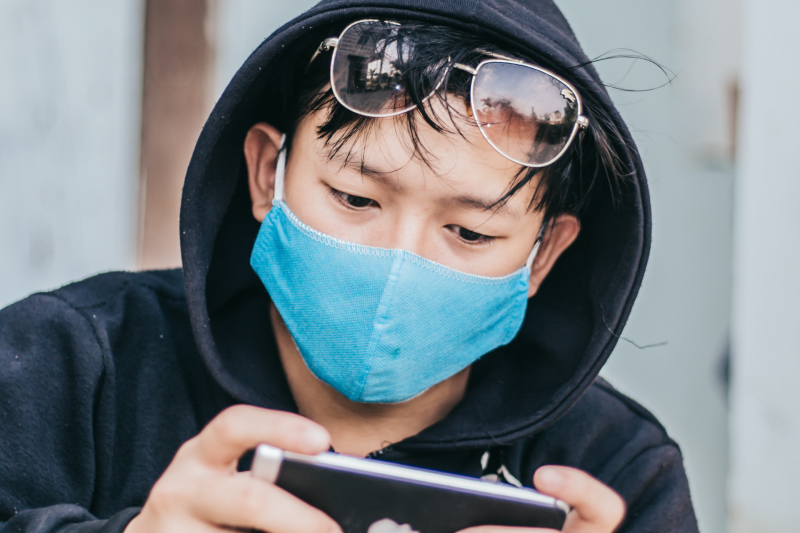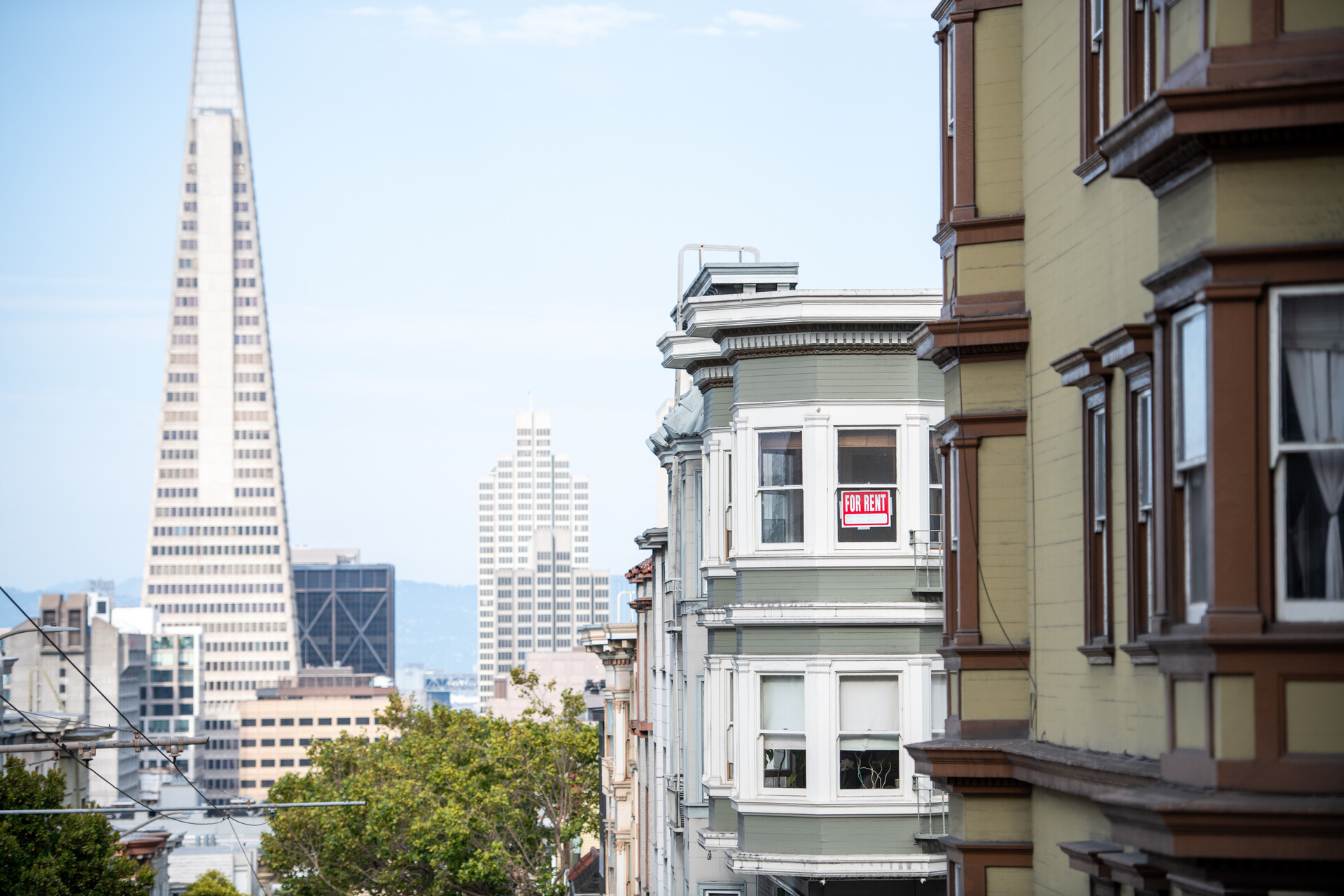

At the very last minute, California extended eviction protections for people who applied for the state's COVID-19 Rent Relief program by the deadline of March 31.
This means that if you're a tenant who applied for the program to receive help with your back rent — either in partnership with your landlord, or by yourself — the fact that you've applied will technically continue to protect you against eviction through June 30.
But more than half a million people have applied to the state’s emergency rent relief program — called Housing Is Key — since it launched in March 2021, and fewer than half of those applicants have received payments, according to the state’s own dashboard.
So if you're one of those who've applied and are still waiting on your money, what can you practically do during this time? And what can your landlord do while you're waiting for news on your application? Read on.
No. California's statewide moratorium on evictions expired last fall, on Sept. 30, 2021.
But the state's COVID Rent Relief program has afforded its own kind of eviction protections, which started on Oct. 1, 2021. That's because, since that date, any landlord wanting to evict a tenant for failing to pay rent as a result of COVID hardship needs to first apply for rental relief before continuing with an eviction lawsuit. And renters affected by COVID hardship can prevent an eviction from moving forward if they show they've applied for the rent relief program as a defense in court.
These protections would have expired on March 31, but now have been extended through June 30 by California's new legislation — although that's only for people who applied for the rent relief program by March 31.
Several cities and counties across the state had their own rent-related eviction moratoriums that stayed in place after the state moratorium expired. See if your Bay Area county still has an eviction moratorium.

But, although the Department of Housing and Community Development maintains that their goal is to turn applications around in 30 days, the average wait time is much longer — four months, on average, according to a recent report by the National Equity Atlas.
The state says as long as you've submitted your application by March 31, you'll still be able to access your application after that date "to check the status, respond to tasks, and provide additional information requested by your case manager."
When the law is working as it should, if you filled out an application and hit “submit” on or before March 31, you should be protected from eviction under this law. But, that doesn’t mean the law always works as it should.
Some tenant attorneys and advocates have reported clients who submitted an application that was still under review but received an eviction notice anyway. Usually, this is because the landlord either was not aware the tenant had applied or was falsely claiming their tenant hadn't filed all the required documentation for the application.
In late March, the state attorney general’s office sent warning letters to 91 law firms representing landlords across the state, reminding them that filing false declarations is against the law.
With the new state legislation, you can't be evicted for not paying rent before March 31 — but you can be evicted for nonpayment after that date.
“Filing false averments in court violates multiple state laws,” wrote Deputy Attorney General Hunter Landerholm, “as does maintaining such a case after learning that the declaration used to initiate it is false.”
The letter encouraged those law firms to “review” the eviction cases on file to “ensure that they comply with the law.”
Evictions are still happening, said Madeline Howard, senior attorney at the Western Center on Law and Poverty, “because the protections are imperfect. And it's really hard to enforce them without an attorney.”
Typically, a lawyer can help a tenant combat these claims. So, if you applied for rent relief on or before March 31 and the application is still pending, but you’re getting an eviction notice, contact a lawyer. Find a legal aid office near you.
If your landlord is asking for proof that you've applied to the rent relief program, Howard advises that you download your application document on the Housing Is Key website, and send that to them, to “make it very clear that you have applied.”
A key thing to remember: For most tenants in California, starting April 1, landlords will still be able to take their tenants to court and start eviction proceedings over missed rent. That's because this new state legislation means a landlord can't evict you for not paying rent you owed before March 31 — but it doesn't protect you from eviction for not paying rent after that date.
If you apply for rent relief, the funds will come either from the state or your own county, depending on where you live. You also can be eligible for both. When you applied through the state's COVID rent relief portal, you would have been directed to the right place to apply depending on your location, whether it's state assistance or local assistance.
The state's extension of eviction protections only applies to tenants who applied for rent relief on or before March 31. That means that if you live in a jurisdiction where your city or county is administering the rent relief program (and it’s not going through the state’s Housing Is Key program), and they allow you to submit an application for rent relief after April 1, you could still be evicted even if you’re waiting on rent relief from your city or county.

Howard said if you do get an eviction notice, "Please contact a legal aid office as soon as you can, because those cases move very, very quickly." Find a legal aid office near you.
Remember, since the official state eviction moratorium expired Sept. 30, 2021, renters affected by COVID hardship could prevent an eviction from moving forward if they presented their pending relief application as a defense in court — and this new extension of eviction protections means that'll now stay true through June 30.
"One of the problems with the statewide protections is they're very complicated and it's really hard for a tenant to use the state protections if they don't have an attorney," Howard said. "And most tenants who face eviction have to go to court without an attorney."
Howard's colleague Lorraine López, senior attorney with the Western Center on Law and Poverty, recommends that you also look up community organizations and nonprofit legal services that assist tenants and access their information sheets, workshops and clinics to educate you about your rights in the event your landlord issues you with a legal notice. Find a legal aid office near you.
It's also critical that you don’t move out, said López. "We call this 'self-eviction,'" she explains, and said while "many tenants think that a notice is enough to evict them, in California a landlord needs to get a court order to remove you from your home."
So until a court has issued an order telling you to move? Don’t leave.
"In some cities and counties, a landlord can face not only criminal penalties if they forcibly remove you from your home without a court order, but also monetary penalties if the tenant files a lawsuit. The moment you leave, you lose many valuable protections and you may even end up with a judgment against you," said López.
If your application is still pending after this extension expires, yes: You could be evicted.
And it’s likely that many — tens of thousands of people — will find themselves in this category. Howard noted that an analysis of the rent relief program by the research group PolicyLink shows that at the current rate applications are being approved, some applicants will still be waiting for a decision at Thanksgiving.
That said, there are some things lawyers can do to help. If you find yourself in that situation — with a pending rent relief application and an eviction notice — you should contact a lawyer. Find a legal aid office near you.
"If you have an application in already and you're just waiting, I would suggest reaching out to HCD [the Housing and Community Development Department]," Howard said. She recommends calling the help line at (833) 430-2122.
If you’ve gotten a "pay or quit" eviction notice from your landlord, Howard recommends telling HCD you need them to expedite your application. The department operates off a prioritization list, and your application could be considered sooner if you’re in an emergency situation.

This is where things get really complicated.
If your local jurisdiction enacted eviction protections before Aug. 19, 2020, those protections are grandfathered in and will remain in place. This includes those passed in Alameda County, Oakland and the city of Los Angeles.
If your local jurisdiction enacted stronger local protections after that date, you are not grandfathered in. That means residents in San Francisco and Los Angeles County who would have been protected under new local regulations will no longer be protected.
If this strikes you as counterintuitive, you're not alone. Howard questions the "fundamental mismatch" in how California is effectively now "blocking these local protections that would have helped people for a time period that is not covered at all or addressed at all by the state law."
If you have not submitted an application to Housing Is Key, you will not be able to submit a new one after March 31.
If you’ve already submitted a Housing Is Key application, it’s possible the state may allow you to reapply for additional funds, including for prospective months.
If you live in a jurisdiction with its own rent relief program (like Sacramento, Oakland and Fresno), your local program may continue accepting applications beyond March 31.
That said, there may also be local resources that can help you with your rent. If you live in the Bay Area, call 311 to find out more.
The CalFresh food program is California's version of the federal Supplemental Nutrition Assistance Program, or SNAP, which provides food benefits (also known as food stamps) to lower-income families. New CalFresh applicants can start their application online in English, Spanish or Chinese using the state’s official site, or by calling (877) 847-3663. You also can apply in person at your county’s designated CalFresh office.
The state says that if you receive assistance from its COVID-19 Rent Relief program, this won't disqualify you from any other state benefit assistance programs like CalFresh.
A version of this story was originally published on March 21, 2022. This story includes reporting from The Associated Press.